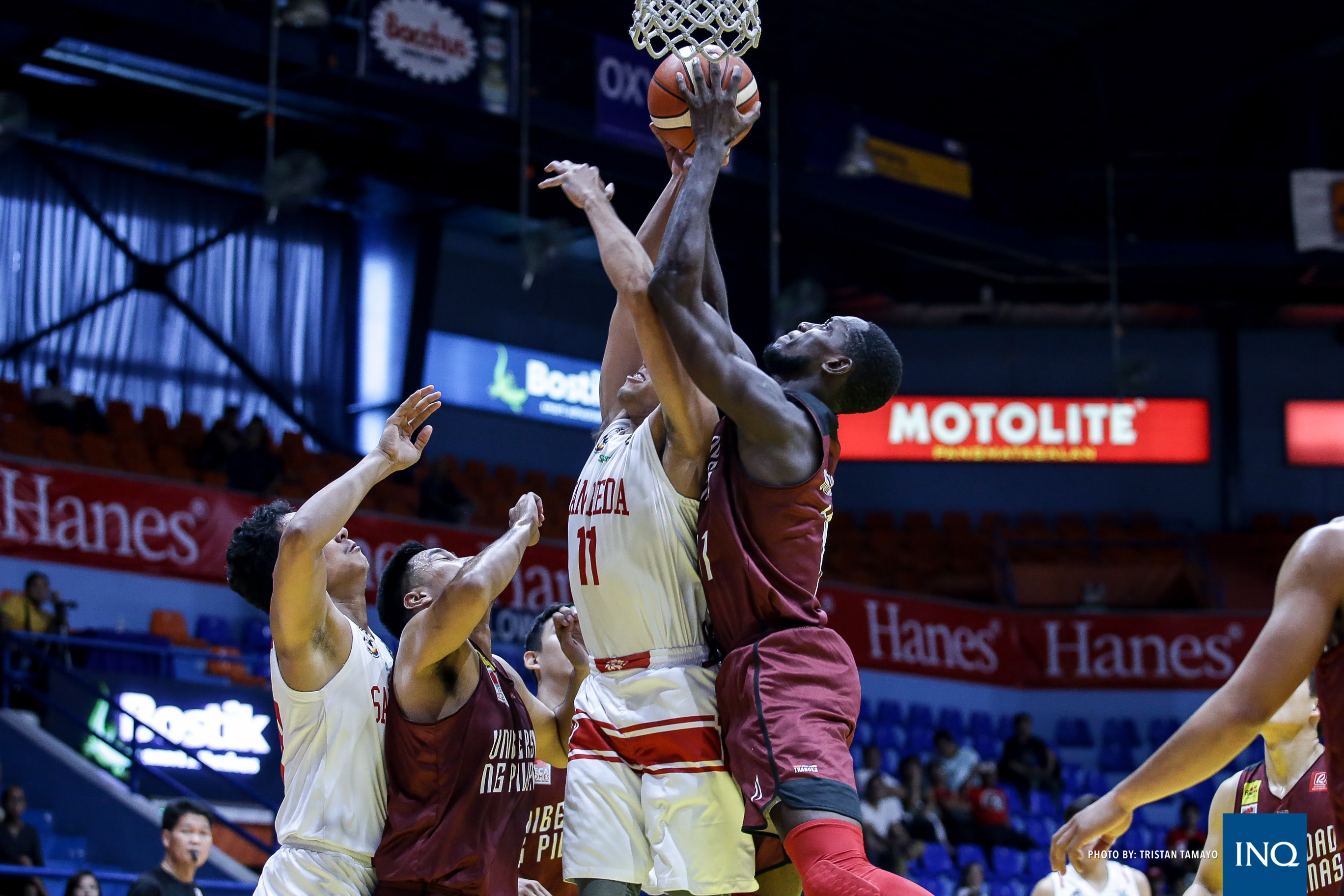UP appeals to overturn UAAP ruling on Ouattara’s eligibility

Photo by Tristan Tamayo/INQUIRER.net
University of the Philippines coach Bo Perasol said Tuesday that the team will appeal the case of Ibrahim Ouattara, its most recent import who now faces ineligibility allegedly due to the rule on two-year residency.
In a text message to the Inquirer, Perasol said that their management group is “bent on elevating this issue to the decision-making Board of Trustees (BOT)” of the University Athletic Association of the Philippines.
Article continues after this advertisementAlong with Ouattara, Cameroonian Steve Akomo of the University of Santo Tomas Growling Tigers also faces the same issue raised by the UAAP Board. Both allegedly do not meet the residency requirement to play for the UAAP Season 80.
Cayetano Law
But Perasol said he believes that the Cayetano Law should be followed. Signed in 2015, Republic Act No. 10676, otherwise known as the Student-Athletes Protection Act, regulates the residency requirement in school leagues.
Article continues after this advertisementAn athletic association may impose a maximum yearlong residency for college student-athletes before they could participate in any competition, the law says.
Perasol pointed out that “the BMD decision is definitely recommendatory,” noting that it may have based its decision on the case involving Ben Mbala of the De La Salle University Green Archers.
A transferee from Cebu, Mbala had to wait for two seasons after his transfer to Manila from Southwestern University before he could play at the UAAP.
‘Overturned’ rules
Lawyer Ags Uvero, chair of the NowhereToGoButUP Foundation which supports UP sports teams, said prior to Mbala’s case, the residency requirement for transferees “regardless of nationality” was only a year.
“The BOT decision on the Mbala case in 2012 has been overturned by the latest rules,” he told Inquirer in a text message. “The recommendation of the Committee on Eligibility has no basis at all.”
Uvero also said the yearlong residency rule does not make a distinction as to the nationality of the student-athlete.
“Our position is that the latest rules as approved by the Board of Trustees in its meeting held on May 24, 2016, in Pico de Loro, Batangas, are very clear and specific with regard to the one-year residency requirement for transferees from non-UAAP universities,” he said.